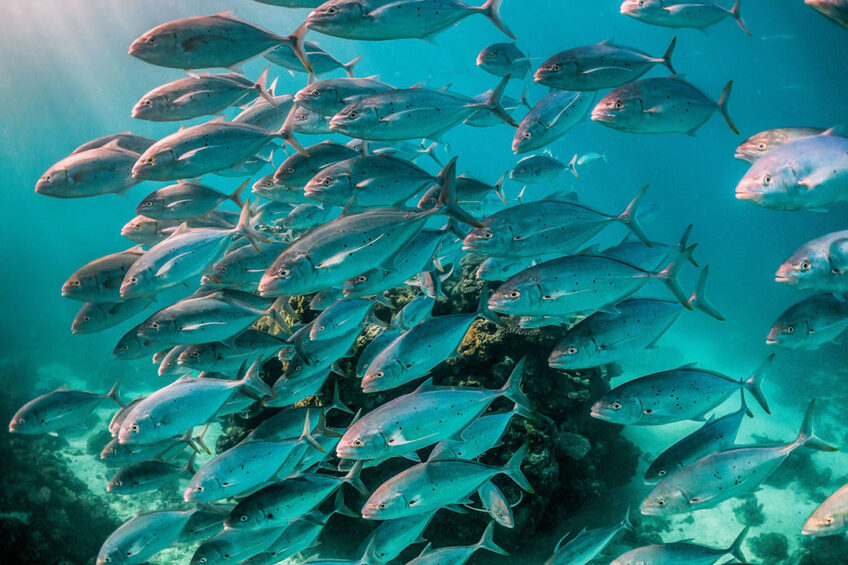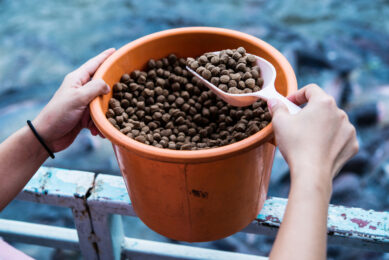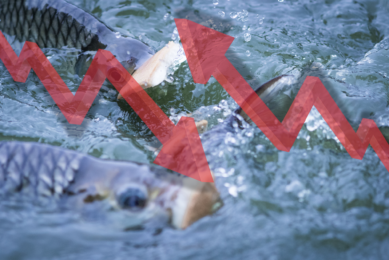Fishmeal plants threaten food security and livelihoods in Gambia

Fishmeal factories in the Gambia are threatening to destroy food security and livelihoods.
The fishing community is particularly upset by the presence of a Chinese-owned fishmeal factory run by Golden Lead in the coastal village of Gunjur, which is around 30 miles south of the capital Banjul.
Gambia has 3 fishmeal factories where fish oil and fishmeal and produced and exported to China, Europe and further afield. The fishmeal is primarily used in animal feed.
Contracts encourage overfishing
The BBC has reported that Gold Lead secures 6-month contract with mostly Senegalese fishers who use powerful boats. The factory buys in bulk, paying $5 a basket. Some fishers agree to this and see it as guaranteed sales, but it means less is available to locals.
Before the factory came here there was lots of fish in the sea. If you want to fish now you need to cross the border to Senegal or Guinea-Bissau.
Buba Cary, a local fisher
Government line – factories attracts investment
The Gambian Fishery Minister Omar Gibba told the BBC that the factory attracts foreign investment, provides much-needed work for local Gambians and dumping of harmful waste, originally associated with the plant, had long stopped.
40% of Gambia’s annual fish catch
But the Dutch non-governmental organisation Changing Markets Foundation, has found that the largest of the fishmeal factories in the Gambia, accounted for 40% of the nation’s entire annual fish catch.
Studies highlight concerns
Recent academic studies have also highlighted concerns. A report last month, carried out between the University of Portsmouth Blue Governance Research Centre and agricultural establishments in Ghana, Senegal and Mauritania, looked at the contribution of small-scale migrant fishing to the emergency of the fishmeal industry in West Africa.
The research method consisted of identifying migrant fishers and then quantifying the volumes of small pelagic fish they catch in the Gambia, Mauritania and Senegal. Around 250 fishers were interviewed, making it possible to estimate and determine the share of migrant fishers’ catches allocated to the fishmeal industry. Overall, the 4 groups of migrant fishers identified in Mauritania and the Gambia caught on average more than 305,000 tons of pelagic fish per year between 2015-8.
Analysis of the marketing of their catches shows that almost 63% of the 305,000 tons; ie 192,000 tons of pelagic fish, are destined to supply the fishmeal factories of the 3 countries studied, while only 113,000 tons are distributed on the national consumer markets.
Of the 192,000 tons destined for fishmeal factories, two thirds are sent to Mauritanian factories with the Gambia and Senegal sharing the remaining third.
The report says the fishmeal industries improve the operating accounts of migrant fishers by ensuring the sale of their catches at more remunerative prices than on the local market at the micro level.
However, when analysed on a large scale, fishmeal industries exert a real pressure on the nutritional security of West African countries, as pelagic fish are the main source of protein in the Gambia and Senegal and have been over exploited in recent years. In addition, they prevent access to artisanal processing of their raw materials.
The report concludes that all these elements raise the question of the urgency of regulating migrant fishers catches on a regional scale and drastically reducing the share allocated to fishmeal processing in favour of local consumption.
The report, “Contribution of small-scale migrant fishing to the emergency of the fishmeal industry in West Africa: Cases of Mauritania, Senegal and the Gambia,” is published in Frontiers in Marine Science – Frontiers | Contribution of small-scale migrant fishing to the emergence of the fishmeal industry in West Africa: Cases of Mauritania, Senegal and the Gambia (frontiersin.org)











